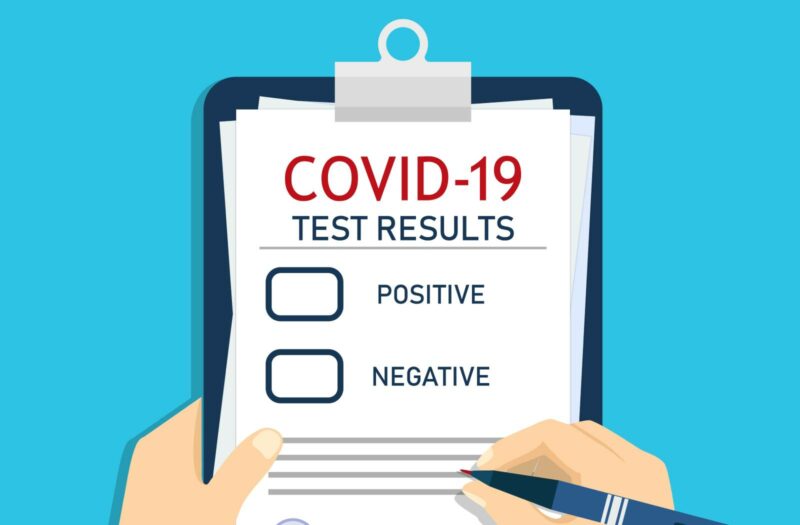Learn more about our FREE COVID-19 Patient Support Program for chronic illness patients and their loved ones.
Key Takeaways
-
- About 20 percent more people with immune-mediated inflammatory diseases were tested for COVID-19 last year than the general population.
- Despite more testing, the risk of infection was not higher in this patient population.
- This study may be reassuring when it comes to risk of infection, but it did not address the risk of hospitalization or complications, which has been shown in other research to be higher in certain patients with these conditions.
For those living with immune-mediated inflammatory diseases (IMIDs) — such as rheumatoid arthritis, inflammatory bowel syndrome, or psoriasis — the early days of the pandemic were especially worrisome. As scientists learned more about COVID-19 and who was most at risk, many patients with these inflammatory and autoimmune conditions took extra precautions.
A new study in the journal Arthritis Care and Research reveals some reassuring news: While people with IMIDs were more likely than the general population to get tested for COVID-19, infection rates were similar. This supports a growing body of research that indicates that people with inflammatory conditions don’t seem to have an increased risk of contracting COVID-19 in the first place, despite many taking medications that can affect immune system function.
The study, conducted in Ontario, Canada, shows that nearly 20 percent more people with IMIDs were tested for COVID-19 in 2020 than was the general population. Data was collected from
493,499 IMID patients and 2,466,946 people from the general population. Common inflammatory conditions included:
- Rheumatoid arthritis
- Psoriasis
- Psoriatic arthritis
- Ankylosing spondylitis
- Multiple sclerosis
- Iritis
- Inflammatory bowel disease
- Polymyalgia rheumatica
- Vasculitis
All patients were served through the Ontario Health Insurance Plan, ensuring that all fees were the same across all subjects. The single-payer health insurance provides access to hospital care, physician services, and testing. Although some patients with IMIDs may have had multiple IMID diagnoses, there was no financial barrier in testing.
The study matched each IMID patient with five patients from the general population. Data collected covered March 2020 to December 2020 and showed that patients with IMIDs were likely to have had at least one COVID-19 test in that time compared to those without (27.4 percent vs. 22.7 percent), but the proportion of those who tested positive was the same for both groups: 0.9 percent.
Interestingly, although infection rates were not higher for IMID patients compared to those in the general population, they differed among IMID patients based on their condition. Among patients who became infected, there was a marginally higher likelihood of infection among those with rheumatoid arthritis and iritis than in those with inflammatory bowel disease or multiple sclerosis. But even with the elevated risks for certain IMIDs, the numbers averaged out to match those without IMIDs.
So, why did IMID patients test for COVID-19 more frequently? Researchers surmise that it may reflect greater health awareness and higher perceived risks for severe infections. Patients already living with chronic illness may be more willing to get tested to avoid complications from a delayed diagnosis. Some patients may have more symptoms from other diseases that mimicked COVID-19 symptoms, prompting more testing.
As the pandemic continues, COVID-19 testing remains an important part of staying safe, especially for people managing an autoimmune or inflammatory disease who are used to closely monitoring their health. But it should be reassuring that patients did not demonstrate a greater risk of contracting COVID-19 than the general population.
One caveat has to do with the risk of complications among patients after they are infected, however.
“It should be emphasized that this study did not evaluate the risk of being hospitalized to due COVID-19, which has been shown by our group and others to be higher in patients with IMIDs,” study author Lihi Eder, MD, PhD, of the University of Toronto Women’s College Research Institute, told Healio Rheumatology.
Get Free Coronavirus Support for Chronic Illness Patients
Join the Global Healthy Living Foundation’s free COVID-19 Support Program for chronic illness patients and their families. We will be providing updated information, community support, and other resources tailored specifically to your health and safety.
Eder L, et al. Understanding COVID-19 Risk in Patients with Immune Mediated Inflammatory Diseases: A Population-based analysis of SARS-CoV-2 Testing. Arthritis Care & Research. September 6, 2021. doi: https://doi.org/10.1002/acr.24781.
Laday J, et al. COVID-19 testing 20% higher among patients with immune-mediated inflammatory disease. Healio Rheumatology. September 27, 2021. https://www.healio.com/news/rheumatology/20210924/covid19-testing-20-higher-among-patients-with-immunemediated-inflammatory-disease.






